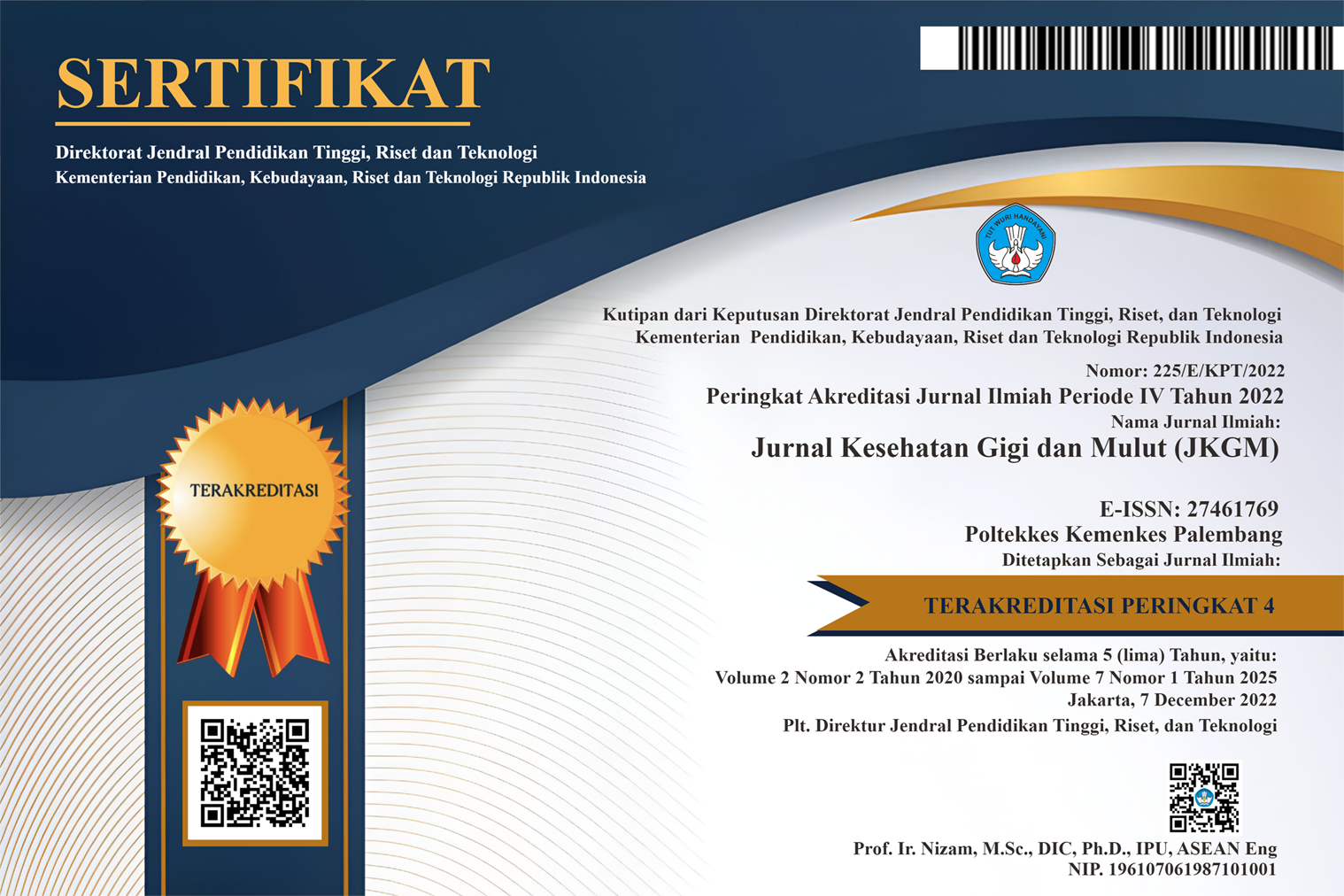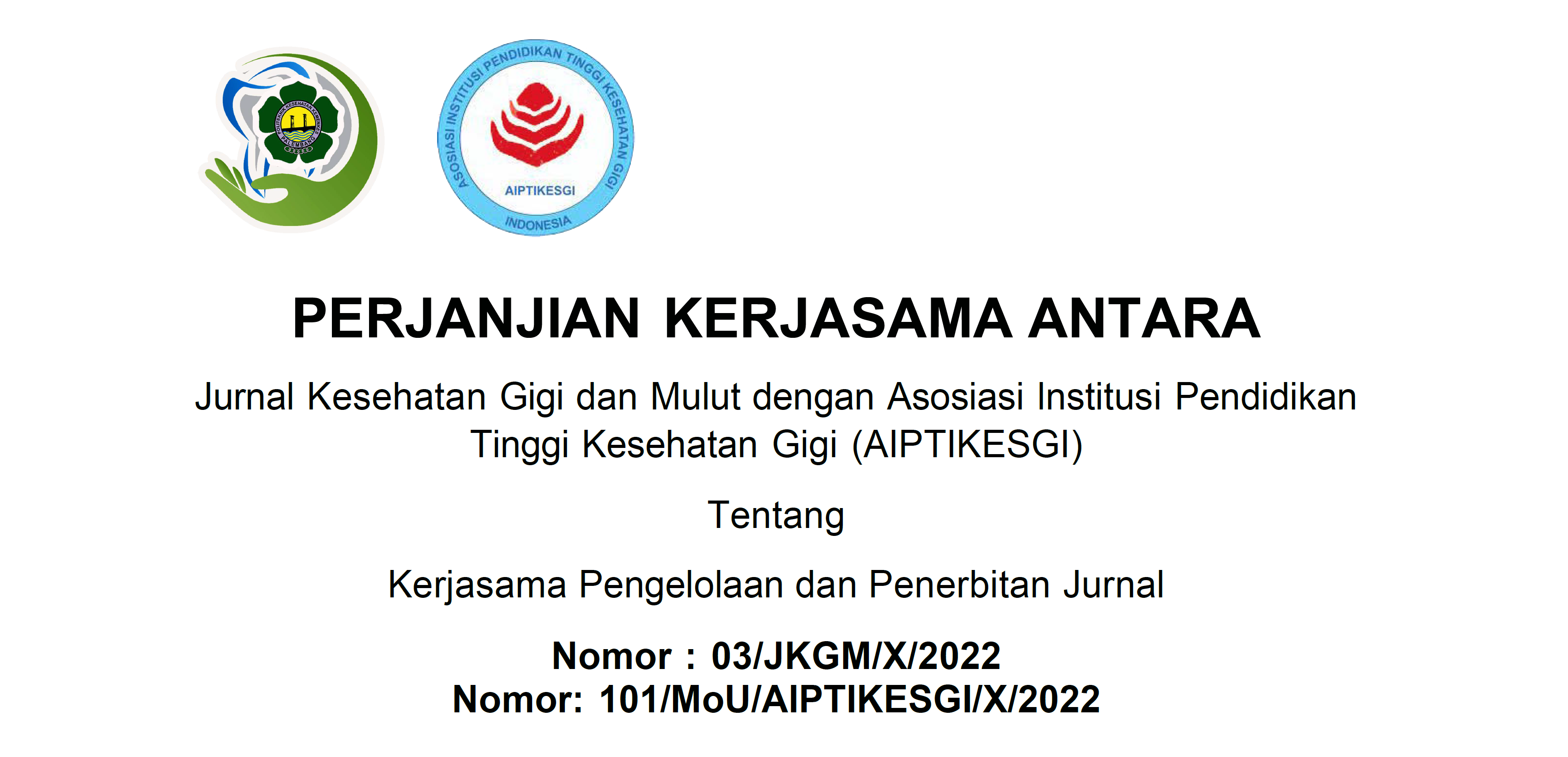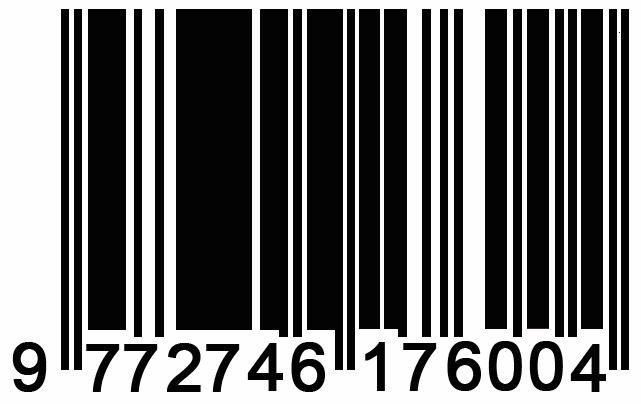EFEK KONSUMSI BISKUIT UBI UNGU TERHADAP SALIVA DALAM UPAYA PENCEGAHAN KARIES
Abstract
The occurrence of caries is due to an unbalanced demineralization and remineralization process. Both of these
processes are affected by the salivary acidity (pH). Eating foods containing complex carbohydrates (phosphorus
and calcium) is very influential in the remineralization process. One type of food containing phosphorus and
calcium is purple sweet potato biskuits. Wheat-based biskuits are used as a comparison. The purpose of this
study was to determine the average salivary pH, time (minutes) needed for remineralization or restore normal
pH. The population of this study was children aged 10-12 years at SDN 35 Palembang. A sample of 20
respondents were divided into 2 groups, namely the group that consumed purple yam biskuits and the group that
consumed wheat biskuits. The research design is a quasi-experimental study. From the results of the study it was
found that the average amount of saliva pH after consumption of purple yam biskuits was 8.58 and the average
pH of saliva after consumption of wheat biskuits was 6.45. The normal salivary pH return time after consuming
purple yam biskuits is 30 minutes (average salivary pH 7.39), and after consuming wheat biskuits it is 40
minutes (mean salivary pH 7.18). It can be concluded that purple sweet potato biskuits have the advantage of
slowing down the demineralization process after consuming carbohydrates and accelerating the
remineralization process.
Authors who publish with this journal agree to the following terms:
- Authors retain copyright and grant the journal right of first publication with the work simultaneously licensed under a Creative Commons Attribution License that allows others to share the work with an acknowledgement of the work's authorship and initial publication in this journal.
- Authors are able to enter into separate, additional contractual arrangements for the non-exclusive distribution of the journal's published version of the work (e.g., post it to an institutional repository or publish it in a book), with an acknowledgement of its initial publication in this journal.
- Authors are permitted and encouraged to post their work online (e.g., in institutional repositories or on their website) prior to and during the submission process, as it can lead to productive exchanges, as well as earlier and greater citation of published work















